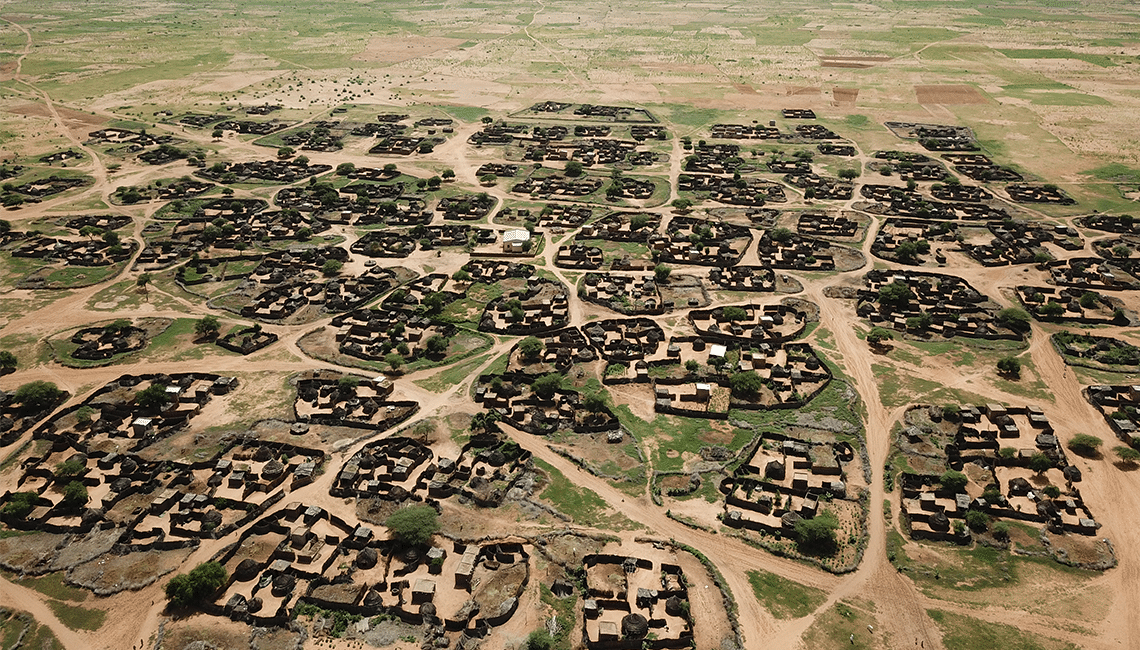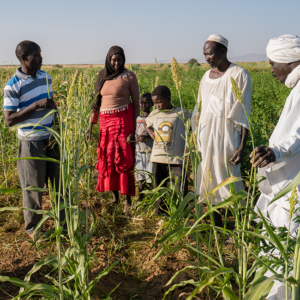
Majdoub village, Darfur
It is hard to describe just how far Majdoub has come since Practical Action first started work there.
When Practical Action project manager Awadalla Hamid first arrived there he was met with suspicion. To say people in Darfur had been through a bad time is a colossal understatement. Farmers and cattle owners who had lived side-by-side for generations had turned on each other. Traditional community structures had been ripped up as age-old systems of decision making and governance disintegrated in the chaos of civil war and the horror of ethnic cleansing.
Newcomers – even Darfurians – were treated with suspicion when they entered a village without an invitation. Worse still, there was often no-one acting as a leader or decision maker. As a result, Awadalla and his team often found themselves facing hostile groups of fellow Darfurians and, more than once, were kidnapped and threatened with death.
“It was a difficult time,” said Awadalla. “People had lost everything. To get people to work with us, we had to start by showing that we could be of value.”
So Awadalla and his team started by teaching people basic skills that would enable them to access money and infrastructure.
Firstly, they helped them form village development committees and trade networks and taught members skills such as decision making, negotiation, governance structures, basic accounting and training methods.

Awadalla training farmers, Majdoub
Through these networks, Awadalla and his team was able to employ a ‘train the trainer’ system by sharing new skills and techniques with individuals who returned to their communities and shared their knowledge with thousands more people.
In this way, farmers, blacksmiths, brickmakers and women’s groups all continued to benefit from Practical Action’s way of working even when it was too dangerous for his staff to travel outside the main towns.
At the same time, well run village committees found they were able to work with local authorities and INGOs to access money for basic infrastructure, like water pumps and services such as access to credit.
“After we had showed value to the communities and they became happy to see us, we started showing them more successful ways of environmental conservation and agricultural techniques.”
But many farmers had doubts about the benefits of the wisdom of Awadalla and his team.
“We still have to prove that our work will benefit the people,” added Awadalla. “So we show them the benefits with their own eyes.
“We divide a field up into two and show them how the crops would grow with their methods and how they grow with our techniques.
“Once they see that the crops are growing better with our techniques, everyone copies them and people want to work with us. It is up to us to make sure we are working with the people who will share the knowledge as much as possible.”
And that’s not all. Once other communities started seeing the benefit of putting community structures in place, they got in touch with Awadalla and his team and copied them, meaning they could access funds – from regional governments and other organisations – and take control of their future and rebuild their lives.
And we’ve not stopped there. This system of water management has became a model for other larger organisations like ZOA, Oxfam and many others in the region, who have started replicating our work and building on our experience.
What’s more, this work has now become a reference for researchers and universities students who are able to learn from this project and take it to Government policy makers not just in Sudan, but in many other countries facing similar problems.
In making change like this happen across an entire region Awadalla and the team in Darfur are the living embodiment of the very sentiment which drives Practical Action: big change, starting small.
Find out more about our future plans in Darfur